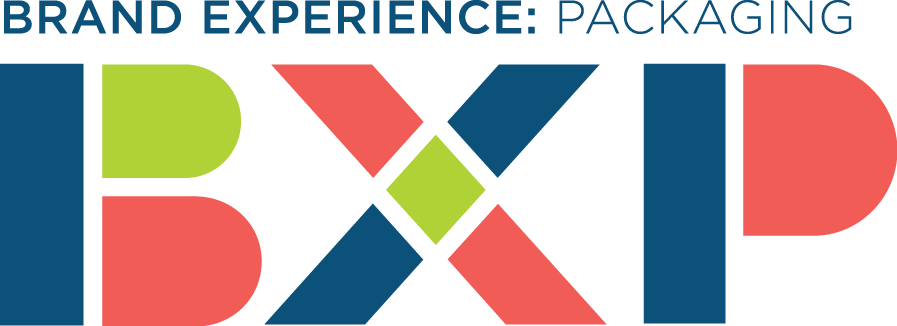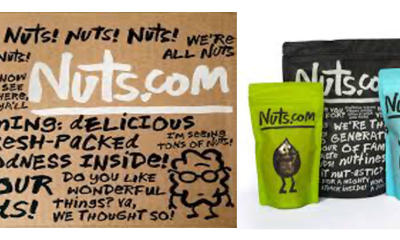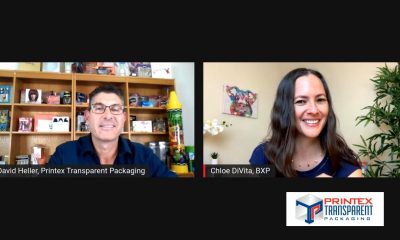Press Releases
Horizon Organic Moves Toward Becoming the First Carbon Positive National Dairy Brand
Largest USDA certified organic dairy brand shares results from life cycle assessment and initial actions to reduce emissions across its supply chain.
Published
3 years agoon

(PRESS RELEASE) As a step towards Horizon Organic’s carbon positive by 2025 goal, Horizon has published an executive summary of its life cycle assessment (LCA) on Horizon Organic whole milk half gallons, providing a look at the brand’s carbon footprint and the next steps that Horizon will take to reduce emissions. Horizon is aiming to achieve carbon neutrality, and then go beyond by removing or preventing additional carbon from entering the atmosphere, becoming carbon positive.
“Time is not on our side when it comes to climate change, and it’s the responsibility of businesses to act with urgency and transparency,” said Deanna Bratter, Head of Sustainable Development at Danone North America. “Releasing Horizon Organic’s carbon footprint is only the first step in this journey. We’re now focusing on partnerships and investing in our family farmers to implement carbon reduction projects to meet our ambitious carbon positive by 2025 goal.”
One year ago, Horizon Organic, the largest USDA certified organic dairy brand in the world, announced its goal to become the first national dairy brand to be carbon positive across its full supply chain. When Horizon made this commitment, the brand also promised to be open and transparent throughout its journey to becoming carbon positive. By releasing its whole milk half gallon carbon footprint, Horizon hopes to help customers better understand dairy’s impact on the environment and what is being done to reduce emissions across its supply chain.
The Findings
The results of the life cycle assessment (LCA) on Horizon’s whole milk half gallon confirmed that:
- Two-thirds of Horizon Organic’s greenhouse gas (GHG) emissions come from on-farm activities such as soil management, enteric fermentation, manure management and milking.
- The remaining one-third of emissions come from off-farm activities such as manufacturing, transportation, final product, packaging, and end-of-life.
To see the full breakdown of Horizon Organic’s carbon footprint, visit here.
AdvertisementActions on the Horizon
As the brand embarks on the next part of its carbon positive journey, Horizon Organic is taking the following steps to reduce its carbon footprint from farm to fridge:
- Enhancing Soil Health: Horizon Organic farmers are already enrolled in the Danone North America Soil Health Initiative, which represents 28,000 acres or 26.4 million gallons of organic milk and additional farmers will be enrolling soon. The Danone North American Soil Health Initiative works with farmers to institute soil health programs that reduce and store carbon, in partnership with Sustainable Environmental Consultants and their EcoPractices platform.
- Enriching Animals: As part of its animal welfare program, Horizon Organic prioritizes cows’ welfare and health throughout their life. The brand prides itself on continuous improvement, which is why it is rolling out an industry leading program, putting the wellbeing of cows at the center of it all. Bringing this to life, Horizon is working with each farm to identify additional ways to do what’s best for their cows, such as providing calf-jackets to keep calves warm, shade covers to keep cows cool and brushes to keep them comfortable. This enables farmers to achieve more efficient production of milks and lengthens the lives of the cows, ultimately reducing the number of cows needed over the long-term. Horizon is also working with farmers on optimizing diets and manure management to further reduce emissions.
- Improving Processing and Distribution: Currently, 100% of the electricity used at Horizon Organic owned processing plants is derived from wind power through the purchase of renewable energy certificates or through purchase-power agreements. Horizon has also pledged to accelerate transition to low-carbon and sustainable fuel technologies by supporting the BSR Sustainable Fuel Buyers principles to help lower emissions from processing plants to retailers.
- Evolving Packaging: All Horizon Organic half-gallon cartons are currently widely recyclable, and the brand is aiming to make 100% of packaging recyclable, reusable, or compostable by 2025.
“Horizon Organic pioneered organic dairy 30 years ago and continues to raise the bar by committing to being carbon positive by 2025,” said Regan Ebert, president, Premium Dairy at Danone North America. “We know consumers are looking for more than a product today and we’re proud that Horizon Organic is farming for our future.”
Horizon Organic is aiming to certify its Growing Years whole milk half gallon product carbon neutral through the Carbon Trust by the end of 2021. To learn more about Horizon Organic’s carbon positive by 2025 commitment, visit here.
Horizon Organic is part of Danone North America, one of the world’s largest certified B Corps. Horizon Organic’s commitment to becoming carbon positive is a meaningful step in support of Danone’s global goal to become net-zero by 2050 – across the entire global company and its family of brands.
Send your press releases to BXP at press@bxpmagazine.com. Learn about our submission guidelines.

SPONSORED VIDEO
Branding with Ferocity – Thinking Like an Indie Brand
Get a better understanding on how to leverage new technologies to engage and delight shoppers, sustainability’s role in product and package design – being sustainable and premium are not mutually exclusive, plus best practices and tips for collaboration and how to launch new products and refresh existing product line-ups and brands.
You may like
Advertisement

GO MINIMALISM . . . HOLD ON A MINUTE!
Sustainable, 100% Recycled Transparent Sheeting is Now a Reality!

Kroger, Walgreens to Dedicate Section of Their Stores to Reusable Packaging

6 Marketing Tips for Ecommerce Brands to Win the Holiday Shopping Season

New Wunderoots Branding Celebrates the Carrot

Fact or Fiction? The Truth about Eco-Friendly Packaging

BXP May 2021 Think & Clink

Unilever Raises Bar for Accessibility with Degree Inclusive

Crown Royal’s Limited-Edition Pack Designed by Oscar-Winner

Coca-Cola Explores World of Paper Bottles
Subscribe

BULLETINS
Get the most important news and business
ideas from BXP Magazine's news bulletin.
Latest Tweets
Advertisement


